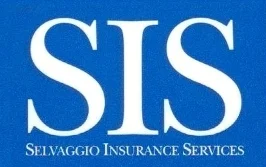Ebola: what you need to know
/It’s hard to turn on the news without a story concerning the Ebola virus disease. Separating the facts from rumor is important for your peace of mind and protecting yourself and your family. I wanted to share some information put together by Anthem Blue Cross that clears the air on this significant public health threat. This threat is not just about Western Africa (where it continues to infect thousands of individuals, and has yet to be contained), but for the global community. Well-publicized cases in Texas, New York and Spain have established the potential for Ebola virus to travel beyond Western Africa.
You may be wondering:
• What is it and what are the symptoms?
• How is it spread to others?
• What should you do if you show signs of Ebola?
What is Ebola and what are the symptoms?
It's a rare and deadly disease caused by an infection of one of the Ebola virus strains.1 Signs of Ebola include:2
• A fever higher than 101.5° F
• Severe headache
• Muscle pain
• Vomiting
• Diarrhea
• Stomach Pain
• Bleeding or bruising that can't be explained
How does Ebola spread to others?
Ebola is not spread in the same way as flu - you can't get it from breathing in air near someone who has it.
But you may be at risk if you:
• Had direct contact with blood or body fluids from a person with Ebola.
• Had direct contact with items that touched the blood or fluids from a person with Ebola.
• Touched bats or primates (such as apes or monkeys) or had contact with blood, fluids or raw meat from these animals.
• Went to a hospital where Ebola patients were being treated and had close contact with patients.
How can you protect yourself from Ebola?At this time, there is no vaccine approved by the Food and Drug Administration (FDA) for Ebola. Vaccines and treatments are being developed, but they have not been fully tested for safety or effectiveness.
To help protect yourself from Ebola as well as other diseases you should:2
• Wash your hands with soap and water or use an alcohol-based hand sanitizer.
• Don't touch the blood or body fluids of people who are sick.
• Don't handle items that may have come in contact with a sick person's blood or body fluids.
How is Ebola treated?
There is no FDA-approved medicine for Ebola yet. But the Centers for Disease Control and Prevention (CDC) say that some basic steps, when taken early, can significantly improve the chances of survival:3
• Giving fluids by I.V. (in the vein) and balancing electrolytes.
• Maintaining oxygen status and blood pressure.
• Treating other infections if they happen
Recovery from Ebola depends on good supportive care and the patient's immune response. People who recover from Ebola develop antibodies to fight future infection.
And finally, what should I do if I show signs of Eubola?
If you have signs of Ebola, call your doctor or the emergency room (ER) before you go
for care. That will help them care for you and protect other people at the doctor’s office or ER.
All the insurance providers are watching the news about Ebola very closely. We are continuing to look at ways we can help our members and the communities we serve.
To get the latest updates on Ebola, visit the Centers for Disease Control and Prevention (CDC) website.
Information in article sourced from Anthem Blue Cross


